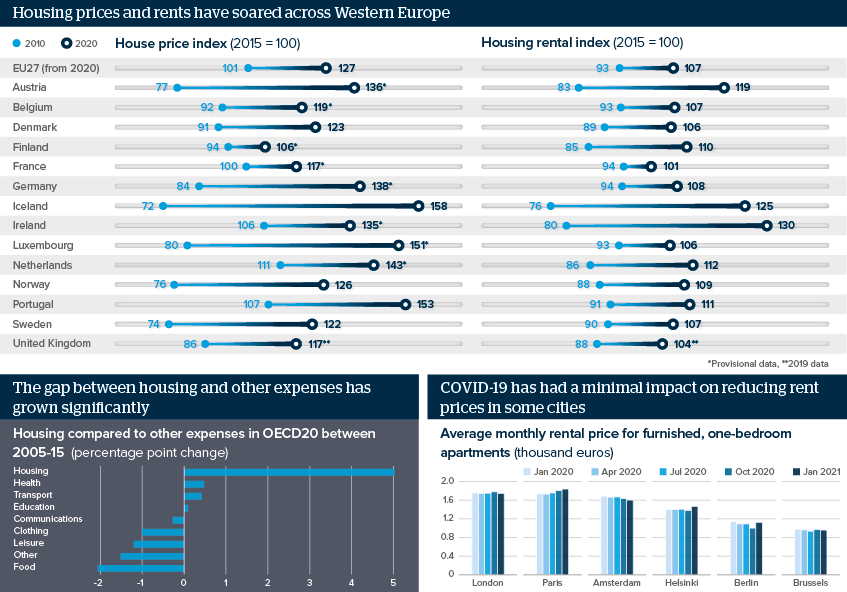House prices threaten political backlash in Europe
The growing challenge in accessing affordable and secure housing could spiral into a political crisis if left unresolved
Source: Eurostat, OECD, HousingAnywhere
Outlook
Access to secure and affordable accommodation has become much harder due to a lack of direct state investment, shortage of supply and sluggish wage growth. The situation is particularly acute for young adults and low-income workers, who on average spend 40% of disposable income on accommodation.
COVID-19 will disproportionately hurt those who have been worst-affected by soaring accommodation prices. Many countries require effective action to re-balance housing policy, such as substantially increasing direct government investment in social housing and introducing stricter rental regulations. Without such action, the housing situation will deteriorate and become an increasingly defining issue in future elections.
Impacts
- If the Greens are in government in Germany after September they will look to implement much stricter rental regulations.
- The trend towards remote working will drive up housing demand and prices in rural parts of countries.
- Delivering fairer access to secure and affordable housing would reduce poverty and inequality.
- The combination of private savings, low interest rates and record high private-sector investment increases the risk of a property bubble.
See also
- Housing crisis will shape Ireland’s political path - Aug 19, 2021
- Housing will be resilient in states rebounding broadly - Jun 29, 2021
- House prices and associated risks are rising globally - Aug 1, 2019
- More graphic analysis
